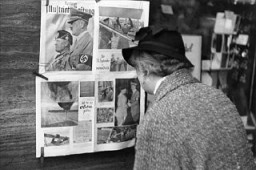You searched for: 厄瓜多尔谷歌开户【TG飞机:@bapingseo】马达加斯加谷歌霸屏推广排名【TG电报:@bapingseo】约旦youtube竞价【Telegram:@bapingseo】BET8一10年信誉玩家首选澳门利澳电子游戏?b3ARBP/6cQZ2l.html
<< Previous | Displaying results 331-340 of 371 for "厄瓜多尔谷歌开户【TG飞机:@bapingseo】马达加斯加谷歌霸屏推广排名【TG电报:@bapingseo】约旦youtube竞价【Telegram:@bapingseo】BET8一10年信誉玩家首选澳门利澳电子游戏?b3ARBP/6cQZ2l.html" | Next >>
-
Leon Rupnik
ArticleDuring World War II, Slovene general Leon Rupnik collaborated with the forces of Fascist Italy and Nazi Germany. Rupnik was appointed president of the Provincial Government of the German-occupied Province of Ljubljana in 1943. He was convicted of treason and executed in 1946. In 2020, his sentence was annulled on a technicality.
-
Lilly Appelbaum Malnik
ID CardLilly Appelbaum was born in Antwerp, Belgium to Jewish parents, Israel and Justine. Lilly's parents separated before she was born. Her father immigrated to the United States. Lilly had two older siblings, Leon (born 1927) and Maria (born 1925). She lived with her maternal grandparents in Antwerp. During the week, her mother lived in Brussels, where she operated a small workshop that made raincoats. 1933-39: Lilly and her grandparents lived in a predominantly Jewish neighborhood in Antwerp. She went to a…
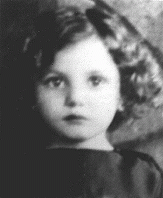
-
Madeline Deutsch describes the seizure of property following the German occupation of Hungary
Oral HistoryMadeline was born into a middle class family in an area of Czechoslovakia that was annexed by Hungary in 1938-1939. Her father worked out of their home and her mother was a homemaker. Madeline attended high school. In April 1944 her family was forced into a Hungarian ghetto. The family lived in the ghetto for two weeks before being transported to Auschwitz. Madeline and her mother were separated from her father and older brother. Neither her father nor brother survived the war. A week after arriving in…
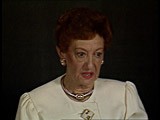
-
Benjamin (Beryl) Ferencz describes collecting evidence of death marches
Oral HistoryBen was born in a small village in the Carpathian Mountains of Transylvania in Romania. When he was an infant, his family moved to the United States. Ben attended Harvard University, where he studied criminal law. Ben graduated from Harvard University Law School in 1943. He joined a US anti-aircraft artillery battalion that was training in preparation for an Allied invasion of western Europe. At the end of World War II in Europe, Ben was transferred to the war crimes investigation branch of the US Army. He…
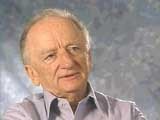
-
Benjamin (Beryl) Ferencz describes collecting evidence against alleged war criminals
Oral HistoryBen was born in a small village in the Carpathian Mountains of Transylvania in Romania. When he was an infant, his family moved to the United States. Ben attended Harvard University, where he studied criminal law. Ben graduated from Harvard University Law School in 1943. He joined a US anti-aircraft artillery battalion that was training in preparation for an Allied invasion of western Europe. At the end of World War II in Europe, Ben was transferred to the war crimes investigation branch of the US Army. He…
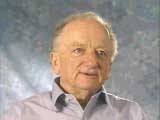
-
Thomas Buergenthal describes a forced-labor camp in Kielce
Oral HistoryThomas's family moved to Zilina in 1938. As the Slovak Hlinka Guard increased its harassment of Jews, the family decided to leave. Thomas and his family ultimately entered Poland, but the German invasion in September 1939 prevented them from leaving for Great Britain. The family ended up in Kielce, where a ghetto was established in April 1941. When the Kielce ghetto was liquidated in August 1942, Thomas and his family avoided the deportations to Treblinka that occurred in the same month. They were sent…
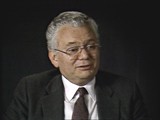
-
Wilek (William) Loew describes Jewish life in prewar Lvov, including restrictions on admission to schools
Oral HistoryWilek was the son of Jewish parents living in the southeastern Polish town of Lvov. His family owned and operated a winery that had been in family hands since 1870. Wilek's father died of a heart attack in 1929. Wilek entered secondary school in 1939. Soon after he began school, World War II began with the German invasion of Poland. Lvov was in the part of eastern Poland annexed by the Soviet Union. Although the Soviets took over Wilek's home and the family business, Wilek was able to continue his…
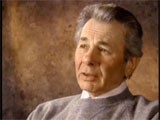
-
Lachwa
ArticleThe Lachwa ghetto was established in Łachwa, Poland in April, 1942. Learn more about the ghetto and uprising.
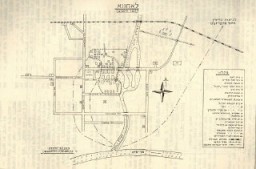
-
Freiberg
ArticleLearn about the Freiburg subcamp of Flossenbürg, including its establishment, prisoner population, and conditions there.
-
Writing the News
ArticleShortly after taking power in January 1933, Adolf Hitler and the Nazis took control of German newspapers, detailing how the news was to be reported.
